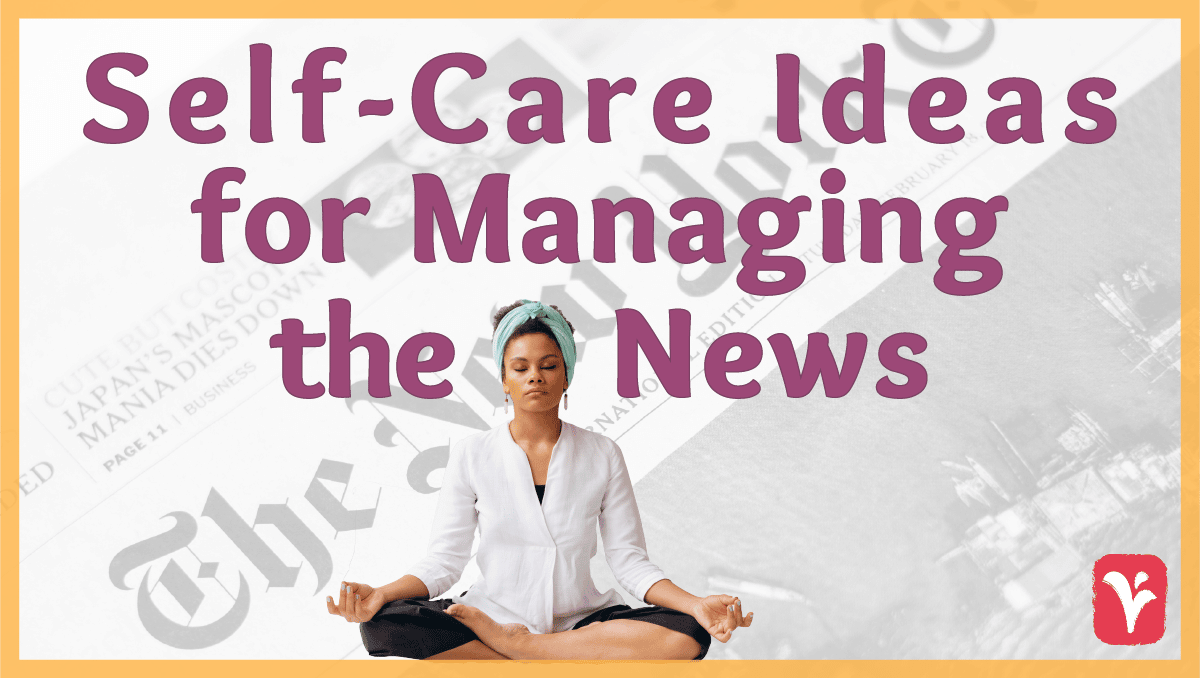Anti-abortion legislation is rampant. It seems as though every day, there is news of yet another state aiming to restrict or ban abortion. The Supreme Court’s majority draft opinion leak solidified our deepest fears—conservatives on the court are poised to overturn Roe v. Wade, the landmark case that legalized abortion in the U.S. for 50 years. Self-care practices are pivotal to staying informed without being entirely overwhelmed by distressing news.
According to the Guttmacher Institute, there were more abortion restrictions enacted in 2021 than any other year since the passing of Roe in 1973. In 2022, that number will likely continue to climb. Last week, Oklahoma passed a near-total ban on abortion, and Gov. Kevin Stitt aims to make the state the most anti-abortion state. Abortion rights throughout the country are grim, with 26 states poised to ban or limit abortion access if Roe is overturned.
Current anti-abortion news and legislation can feel devastating and even personal. When the news feels stressful, it’s essential to practice self-care around information consumption, also referred to as media burnout.
Anti-Abortion Legislation and Adverse Mental Health Impacts
According to the American Psychological Association, “Research shows people who are denied abortions are more likely to experience higher levels of anxiety, lower life satisfaction, and lower self-esteem than those who can obtain abortions.” A 2017 study published in JAMA Psychiatry examined 956 women over five years and found that adverse psychological outcomes were common in women who were denied abortions instead of those who received a wanted procedure. With new restrictions, additional barriers like increased travel time, the burden of coming up with finances to leave the state, or taking time off work can compound stress.
Considering the adverse mental health effects of being denied an abortion, it makes sense that reading news about bans can feel devastating when we already know many of the negative consequences of abortion restrictions on mental health, physical wellbeing, and economic hardship. Anxiety, feelings of powerlessness, stress, sadness, or grief reading the news cycle are entirely valid.
As anti-abortion legislation ignites throughout pockets of the country, it can feel like a deep insult to those with a uterus. Some people report feeling like an outcast in states ramping up anti-abortion legislation. However, it’s important to remember that this is not a decision that most Americans support.
When reading the news cycle over the next few months as the Supreme Court announces a final decision on Roe v. Wade, likely in late June, it’s critical to practice self-care. But, unfortunately, there’s only so much we can process at a time.
According to the American Psychological Association’s report “Stress in America: The State of Our Nation,” healthcare is the top issue that causes stress for Americans. In addition, the report notes that 56% of Americans who consume news regularly state it causes stress.
Because the nature of how we receive information has evolved from looking at one newspaper to getting instant alerts on our phones, hearing about multiple events across social media, and instant access to any platform, it’s no surprise that news consumption causes many people stress. In addition, anti-abortion legislation may use stigmatizing language or words and images that promote shame and misinformation.
There are tips to employ that can help take some of the stress out of news consumption even if the news is itself poor.
Self-Care Tips When Reading the News
- Use your instincts when it’s time to stop scrolling
If you notice any stress symptoms that start to arise, such as brain fog, increased heart rate, sweaty palms, depression, or anxiety, it may be time to exit your browser.
- Only look at reliable news sources.
With so many news sources available, it can help only to read those you trust to provide the most accurate information.
- Subscribe to a newsletter
To glean the most important information from the news cycle, you might consider subscribing to a weekly or daily newsletter from a trusted source. Newsletters can help facilitate the delicate balance of staying informed but not getting lost in a black hole.
- Talk about it with people who get it.
Whether it’s with friends, family, or people in an online space, it can be helpful to process news with others. Processing could be with an online group or an in-person chat through an organization. Exhale Pro-Voice offers excellent resources for groups or opportunities to share your abortion story and a national text line. In addition, attending an abortion rights demonstration in your area can help you connect with like-minded individuals and help with feelings of powerlessness.
- Read stories about reproductive justice heroes.
Avoid the downward spiral of harmful news consumption by supplementing with stories about reproductive justice heroes, like the documentary Vessel.
- Ramp up your self-care when it’s a challenging news cycle
Breathing, yoga, meditation, taking a self-care day off from work, spending time in nature, and socializing with friends or loved ones can help. Self-care practices look different for everyone and can involve anything that tends to your unique physical and mental needs.
- Set time limits
The internet knows no bounds, and it’s entirely possible to scroll for hours. Set an allotted amount of time for news consumption each day and stick to it. Try not to look at the news first thing in the morning or directly before bed, leading to insomnia.
- Take time offline
Your mental health needs to take time offline. Try to spend time each day away from your devices. You have full permission to power down whenever you need to!
It’s easy to feel powerful and overwhelmed during an anti-abortion news cycle. Please take steps to practice self-care around news consumption and permit yourself to limit consumption when it’s too much.
Remember, to support the causes you care about, and it’s crucial to support yourself first!
